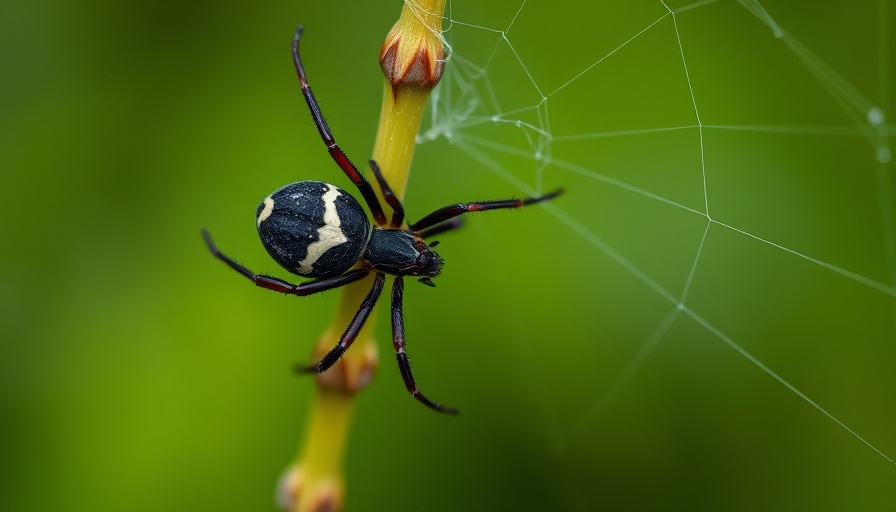
Understanding Spider Bites: An Essential Guide for Your Health
Encountering a mysterious welt on your skin can lead to panic, especially given the myths surrounding spider bites. In 2025, with easy access to medical information, knowing how to identify what you've experienced is crucial. Spiders may seem ominous, but most are harmless. Only a couple of species—namely, the black widow and brown recluse—are medically significant in the United States.
What Does a Spider Bite Look and Feel Like?
The challenge with spider bites lies in their indistinguishability from bites of other insects. Stinging, itching, or swelling may occur often, making the identification process hard. According to experts like Dr. Nancy Troyano, you might look for two small puncture marks, redness, and swelling near the bite. Severe pain or muscle cramps can accompany venomous bites, illustrating the need to remain vigilant.
Dangerous Spider Bites: Symptoms and Treatments
While the majority of spider bites cause merely localized irritation, a handful can lead to severe symptoms. The brown recluse spider's bite, for instance, may develop into a necrotic ulcer, while bites from black widow spiders often manifest with abdominal cramps and systemic reactions such as nausea. Immediate medical attention is vital for these reactions to mitigate long-term health effects.
Recognizing Symptoms: When to Seek Help
Health professionals recommend that individuals should seek immediate assistance if they experience muscle pain, fever, or breathlessness following a spider bite. Understanding this could be the difference between a simple remedy at home and serious medical treatment. Always remember that if you weren't able to see the spider, but are feeling extreme symptoms, don’t hesitate to reach for help.
Prevention: How to Avoid Spider Bites
Preventing spider bites also ties into identifying potential habitats. Keep homes and yards tidy, minimizing clutter where spiders can hide. Pay careful attention to taking preventive measures when hiking or working outdoors, such as wearing protective clothing and using insect repellents. It’s key to educate yourself about local spider species and their behaviors.
Understanding spider bites can not only help you manage anxiety surrounding potential bites but also fortify your overall health awareness.
 Add Row
Add Row  Add
Add 




Write A Comment